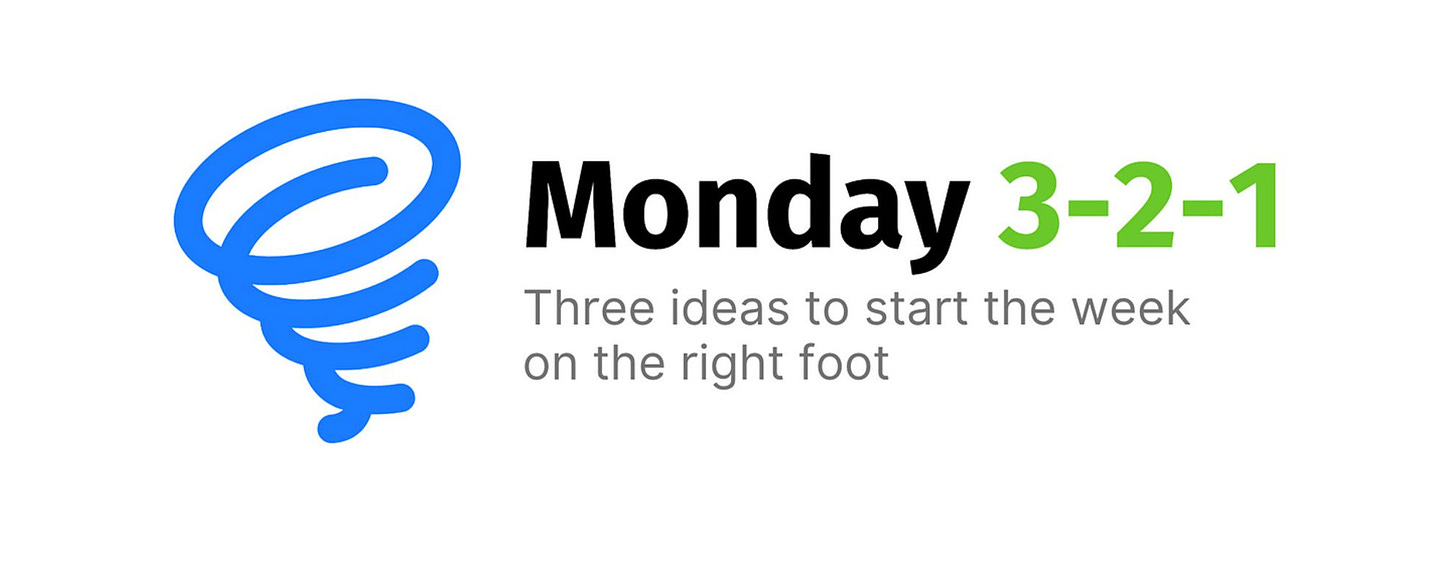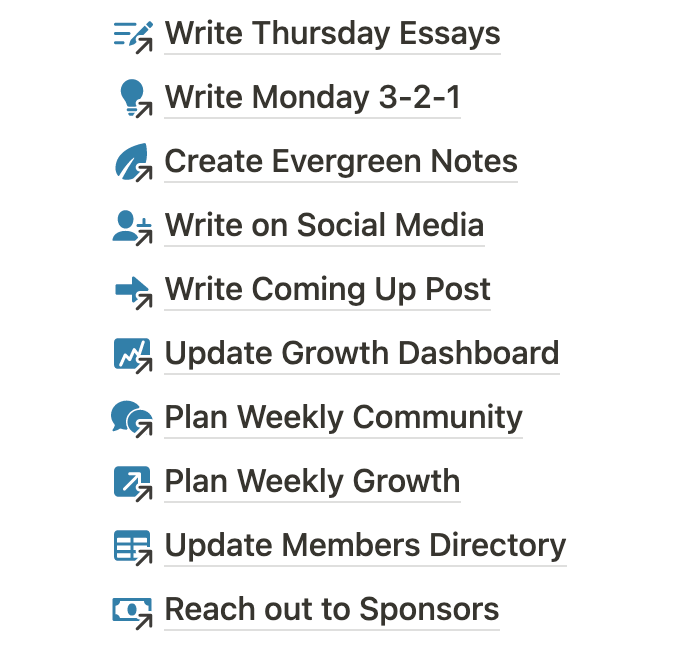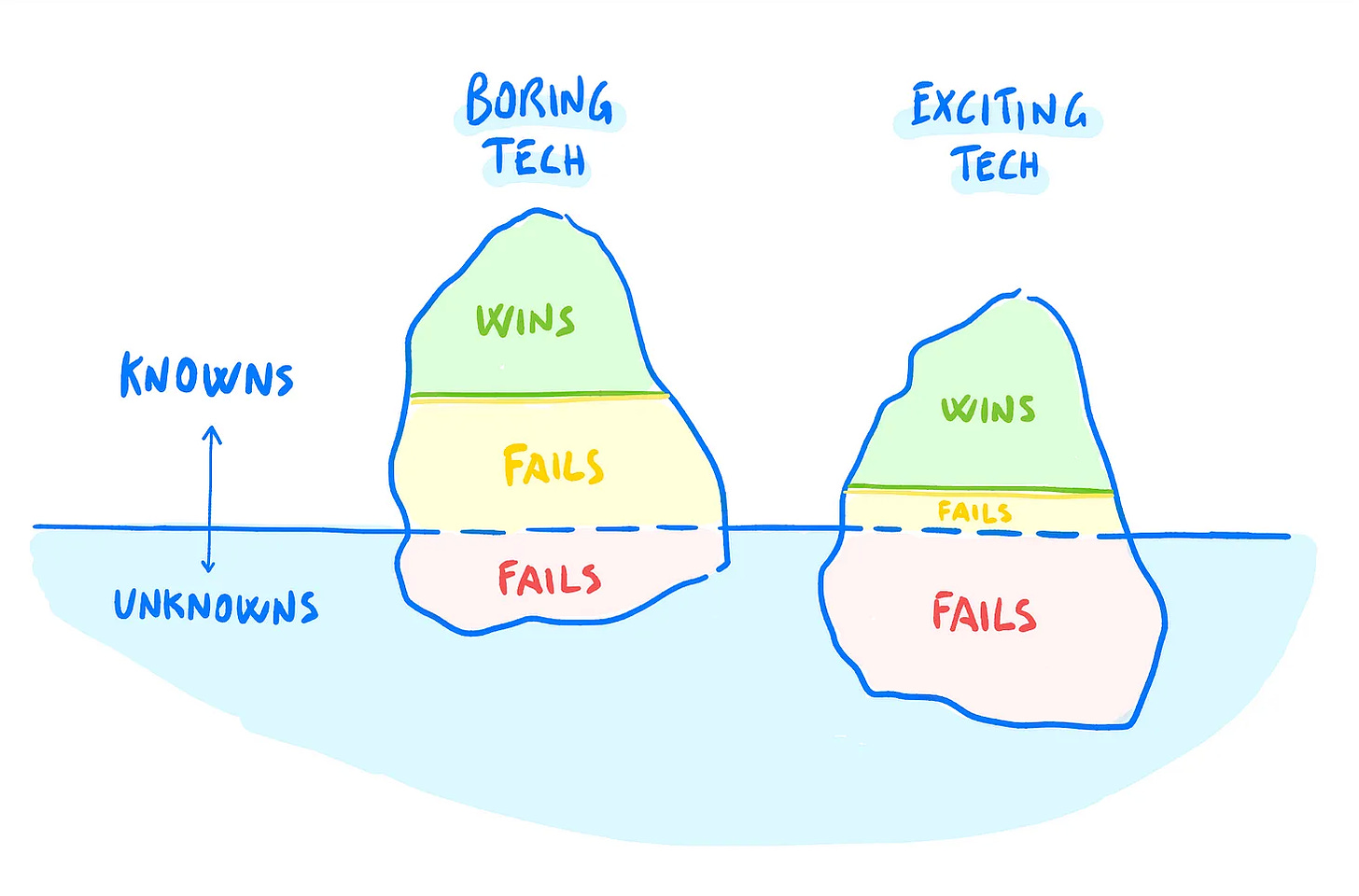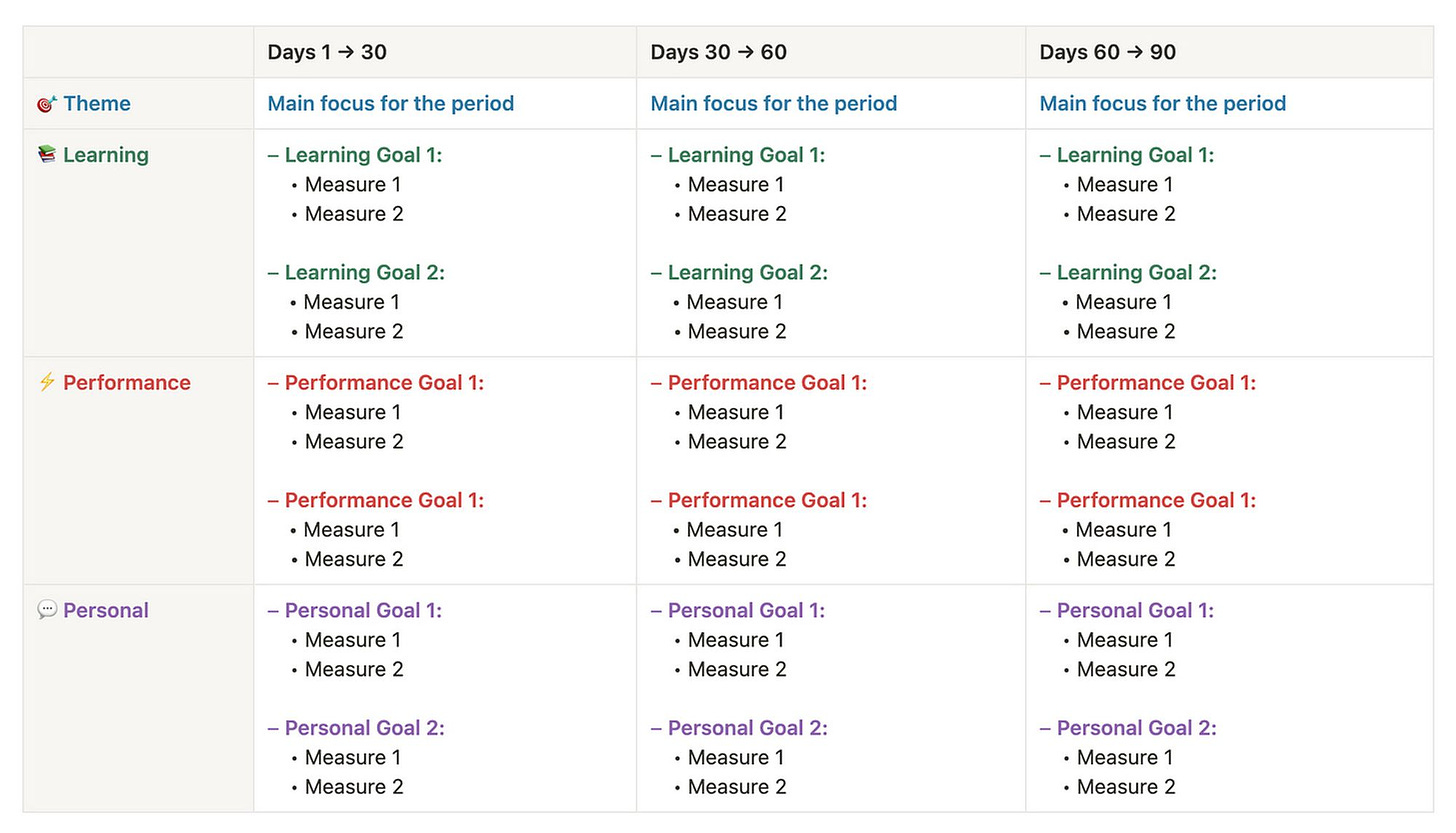Unbundling delegation, farmers vs tech choices, 30-60-90 plans 💡
Monday 3-2-1 — Edition #39
Hey, Luca here! Welcome to the Monday 3-2-1 ✨
Every Monday I will send you an email like this with 3 short ideas about engineering management, technical strategy, and good hiring.
You will also receive the regular long-form one on Thursday, like the last one:
To receive all the full articles and support Refactoring, consider subscribing if you haven’t already!
p.s. you can learn more about the benefits of the paid plan here.
1) 🪚 Unbundle delegation with SOPs
If you feel like you could delegate something, but you are not sure where to start, it is useful to reflect on the fact that delegation is two things together:
Documenting what needs to be done — and, to a certain extent, how.
Managing a relationship — with the person who does it.
When you unbundle these two steps, things become a lot less scary — and here is the good news: doing (1) is easy, and it is pretty helpful even without (2).
Basically, you delegate things to yourself.
Write down instructions for your tasks assuming you totally forgot how to do them. For many of those, this may not be not far from the truth. Think of reports you create on a monthly basis, or recurring hiring routines.
Such instructions are often called SOPs — Standard Operating Procedures — and there is a large body of literature on how to create them well.
You can write them down, or, even more easily, record the process with Loom or Scribe.
I have many for Refactoring as well 👇
Having a SOP written down makes delegation 10x easier.
You should not simply assign them to someone else, as they are too prescriptive, but you can use them as a starting point to discuss the task at hand, collect suggestions, and eventually let the new assignee come up with their own process.
You can find more ideas about delegation in this previous Refactoring article:
2) 🧑🌾 Hunters, farmers, and tech choices
In the book Sapiens, historian Yuval Noah Harari spends some initial chapters explaining the transition of humans from the hunter-gatherer lifestyle, to the farmer one.
In doing so, he debunks several myths about the life of prehistoric men.
Hunter-gatherers lived a simple, happy life: they had a diverse diet, famine was rare, they were physically fit, and, contrary to popular belief, they only had to work a few hours a day.
The transition to farming, instead, brought some unexpected setbacks.
Farmers had to work long hours, sometimes twice as much as their hunter ancestors did. Their health got worse because of intense work, bad diet (mainly carbs), and diseases brought by the poor hygiene of primordial villages.
The farmer lifestyle had one main upside, though: it could produce more food, which would sustain the creation of larger communities.
In other words, life sucked at pretty much everything, but hey — it was scalable now!
Does it remind you of anything?
The first farmers were pretty much the engineers of the prehistoric world. To their defense, nobody chose to made their own life worse on purpose — on paper, odds where overwhelmingly in favour of the farming life. Most downsides were not obvious (e.g. diseases, diet problems) and wouldn’t be so until generations later.
Many big engineering choices are similar. Implications are far reaching, and we may fail to account for the second and third-order consequences.
You can find more ramblings about tech choices and system design in this popular article from the past:
3) 🗓️ 30-60-90 Plans
For any new hire (including yourself) creating a plan for their first 90 days (aka 30-60-90) is an opportunity to create alignment and make them comfortable with how company sets goals.
If you are a manager, the best format for the plan is the one you are already using for other team/individual goals. Do you use OKRs? Go with OKRs. Do you do something more informal? Let’s keep it informal.
For each 30-days period, here is a simple way to organize activities:
Theme — define an over-arching theme for the period. Over the stages this might shift from e.g. learning, to performing your role independently, to coming up with a solution to a proposed problem.
Goals — write 2-3 bullet points about what you want to achieve.
Measures — for each goal, write down how you measure success.
Overall, this is very similar to OKRs, with a theme on top. If you are a manager, you may use this hierarchy to ensure alignment and give gradual autonomy, by:
Providing the theme yourself
Collaborating with the new hire on goals
Letting them come up with the measures
Here is a simple template to organize themes, goals and measures based on the main types of activities 👇
Simple structure for a 30-60-90 plan:
More ideas about organizing your first 90 days, or those of your reports:
And that’s it for today! If you are finding this newsletter valuable, consider doing any of these:
1) ✉️ Subscribe to the newsletter — if you aren’t already, consider becoming a paid subscriber. You can learn more about the benefits of the paid plan here.
2) ❤️ Share it — Refactoring lives thanks to word of mouth. Share the article with your team or with someone to whom it might be useful!
I wish you a great week! ☀️
Luca







